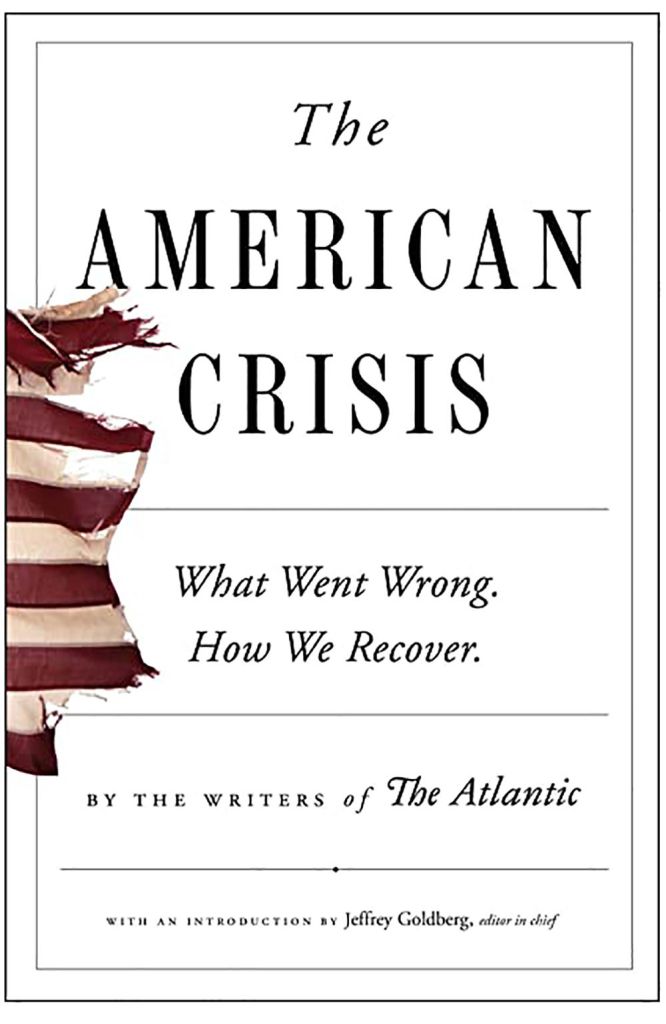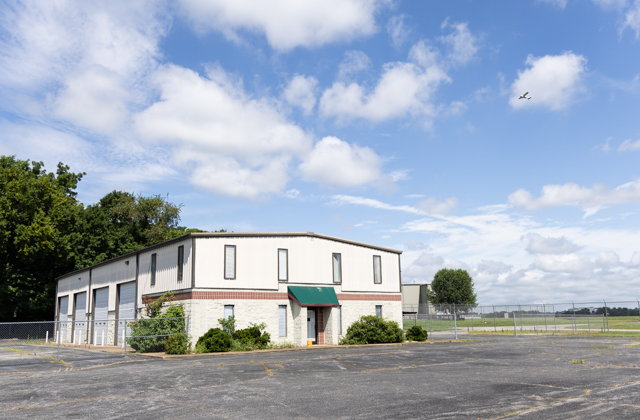Book review: ‘The American Crisis’
Published 12:00 am Sunday, December 6, 2020

- BOOK REVIEW
“The American Crisis: What Went Wrong. How We Recover,” by the writers of The Atlantic. New York: Simon & Schuster, 2020. 576 pages, $30 (hardcover).
“The pace of The Atlantic’s contributions to the national conversation has only increased in recent years,” Jeffrey Goldberg announces near the beginning of “The American Crisis: What Went Wrong. How We Recover,” a collection of essays by the contributors to one of the nation’s most widely-read and influential magazines. “That is why we have decided to publish an anthology of some of our best writing about this vexed era. When we first thought to create the book you are now reading, one of my chief worries concerned chaos.
Trending
“The Atlantic publishes thousands of articles, in print and online, each year, on a near-infinite range of subjects,” Goldberg continues. “Could we find coherence in the cacophony? The answer is a definitive yes. Our editor at large, Cullen Murphy, expertly led the effort to organize the book along discernible lines.”
So begins one of the most intellectually stimulating critiques of the contemporary political, cultural and economic landscape I have had occasion to digest in quite some time. If you are familiar with those leading the ongoing debate about the current and future direction of the country, you will instantly recognize the authors as a virtual “who’s who” among those dedicating their lives and careers to making sense of the extraordinary events that have transpired in our nation over the last few years. Each contributor provides a unique piece to the overall mosaic – and like many of the most enduring works of literature and art throughout the ages, the finished product can only be appreciated when viewed from an appropriate distance.
Fair warning: You’ll need to approach this one without any preconceived notions about the partisan nonsense that serves as an opaque backdrop for almost everything happening in the United States at the moment. So if you do plan to tackle “The American Crisis,” I recommend getting your confirmation bias under control and preparing yourself for some good, old-fashioned cognitive dissonance. On the other hand, if you have already made your mind up that things are going great and are only going to get better, you might want to sit this one out. To fully appreciate these thought-provoking and insightful social commentaries, an open mind is definitely required.
Consider the following from “How America Ends,” an exceptionally poignant and intuitive take on the implications of our present national trajectory: “Whether the American political system today can endure without fracturing further, Daniel Ziblatt’s research suggests, may depend on the choices the center-right now makes. If the center-right decides to accept some electoral defeats and then seeks to gain adherents via argumentation and attraction – and, crucially, eschews making racial heritage its organizing principle – then the GOP can remain vibrant. Its fissures will heal and its prospects will improve, as did those of the Democratic Party in the 1920s, after Wilson. Democracy will be maintained. But if the center-right, surveying demographic upheaval and finding the prospect of electoral losses intolerable, casts its lot with Trumpism and a far-right rooted in ethnonationalism, then it is doomed to an ever smaller proportion of voters, and risks revisiting the ugliest chapters of our history.”
Structurally, the book consists of an introduction by Jeffrey Goldberg, 40 chapters arranged in four major sections: “Falling Apart,” “The Failure of Politics,” “The Age of Trump” and “Becoming Citizens Again” and an afterword by Anne Applebaum. Collectively, the subject matter constitutes a comprehensive perspective on how we arrived at the crossroads we find ourselves at in 2020, what the consequences could be if we do not choose wisely moving forward, and the legacy we will leave future generations if we do not successfully negotiate the challenges coming into focus on the horizon. As Dylan once so eloquently warned, “something’s happening here – but you don’t know what it is do you, Mr. Jones?”
Even though many of the contributors to “The American Crisis” offer a less than favorable picture of what life in the United States could devolve into without a loud wake-up call, there are also those who left me with a very upbeat feeling – one centered around how we could potentially come out of this dark period with a renewed enthusiasm for the infinite possibilities that have characterized our country since its inception. Nowhere is this more on display than in “The Possibility of America,” the second from the last chapter and one of the most inspirational.
Trending
“In the late 1860s, Frederick Douglass, the fugitive slave turned prose poet of American democracy, toured the country spreading his most sanguine vision of a pluralist future of human equality in the recently re-United States,” David W. Blight explains. “It is a vision worth revisiting at a time when the country seems once again to be a house divided over ethnicity and race, and over how to interpret our foundational creeds. …
“Many civil wars leave legacies of continuing conflict, renewed bloodshed, unstable political systems,” he continues a little later. “Ours did just that, even as it forged a new history and a new Constitution. In 2019, our composite nationality needs yet another rebirth. We could do no better than to immerse ourselves in Douglass’ vision from 1869. … Such a rebirth ought not to be the object of our waiting but of our making, as it was for the Americans, black and white, who died to end slavery and make the second republic.”
As you may have surmised, not only do I think this is a good book, I also think it is a very important one. The contributors to “The American Crisis” individually and especially collectively, have provided a much-needed call to arms to preserve and defend something unique in world history. The racial division, economic inequality, political dysfunction, hollowing out of government and devaluation of truth can all be reversed – and the damage can be undone. All it will take is for more Americans to realize what’s happening here and demand we move in a different direction – one in greater alignment with the ideals past generations held high.
– Reviewed by Aaron W. Hughey, University Distinguished Professor, Department of Counseling and Student Affairs, Western Kentucky University.






